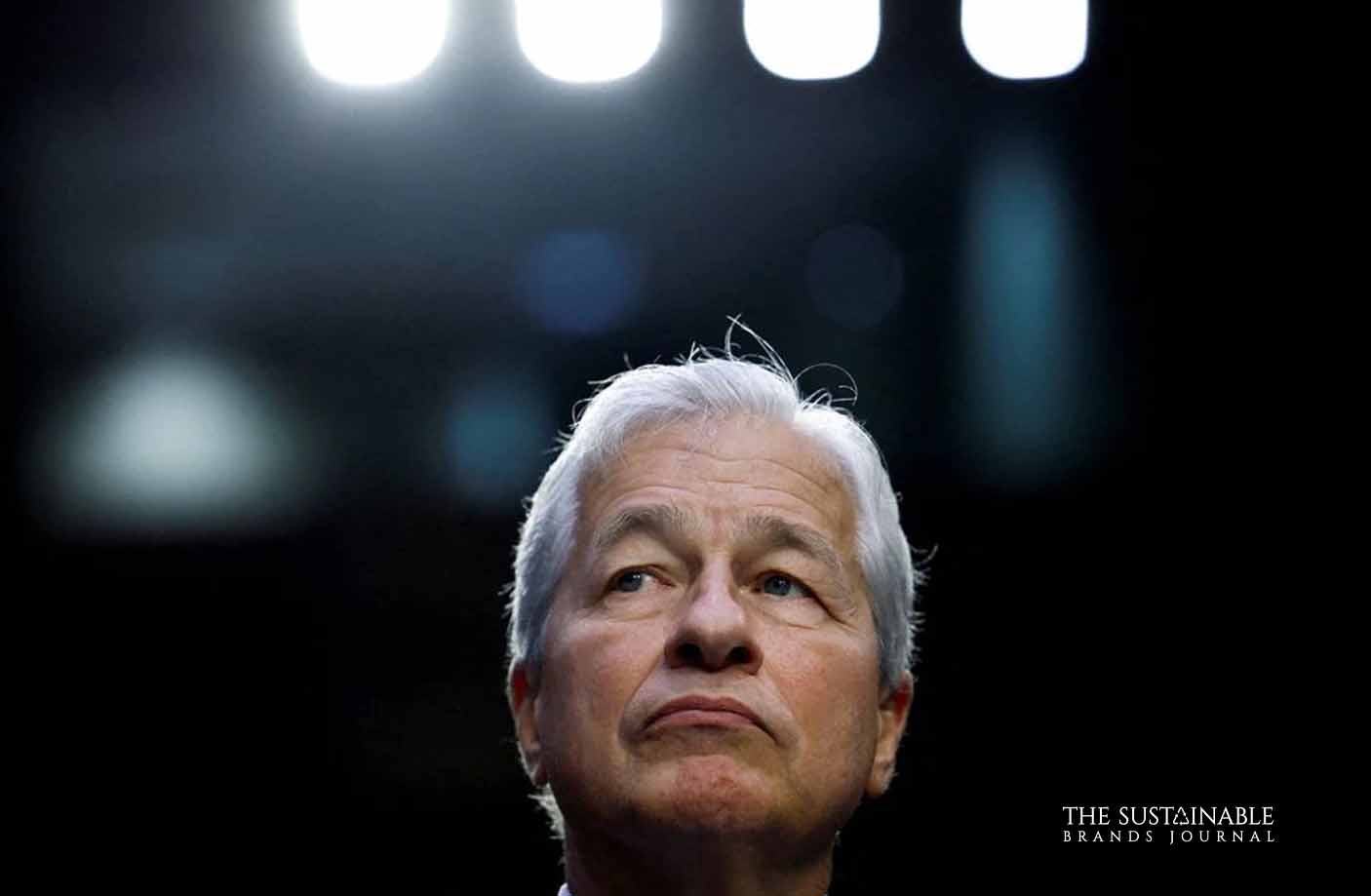
JPMorgan Announces 2030 Emissions Targets for Iron and Steel, Cement, and Aviation Sectors
JPMorgan, the largest US bank and a significant funder of the fossil fuel industry, announced on Thursday that it has set targets to reduce emissions in the iron and steel, cement, and aviation sectors. This follows the release of targets for oil and gas, electric power, and autos in 2021, meaning the bank now has plans to reduce emissions in all sectors that are major contributors to climate-damaging carbon emissions.
The bank aims to reduce emissions per tonne of crude steel produced by 31% by 2030 in the iron and steel sector, a 29% reduction in the cement sector, and a 36% reduction in the aviation sector. These targets align with the International Energy Agency’s Net Zero Emissions scenario.
Investors and campaigners are closely watching JPMorgan’s climate efforts as the world transitions to a low-carbon economy. The announcement of these sector targets has received mixed reactions. While Lucie Pinson, director of non-profit Reclaim Finance, welcomed the targets, she also stated that “the jury is still out” on their effectiveness, as mid-term targets may not be sufficient to reach net-zero emissions. Reclaim Finance also commented that the bank’s update on its progress in the sector showed that its oil and gas targets have “done nothing to change [the bank’s] unwavering support for the sector’s biggest fossil fuel developers.”
While emissions tied to the operational performance of JPMorgan’s clients remained unchanged, emissions tied to the use of oil and gas rose by 1% as of June 30, 2022. The bank explained that this increase in emissions intensity, or emissions per unit of output, was due to its clients producing a higher proportion of oil than natural gas products in 2020 when the latest emissions data was collected. This increase in emissions conflicts with the bank’s commitment to sustainability and the transition to a low-carbon economy.
JPMorgan CEO Jamie Dimon emphasized the importance of energy security and the bank’s support for the oil and gas industry in a year marked by conflict in Ukraine and higher energy prices. “Constraining the flow of capital needed to produce and move fuels, especially as the war in Ukraine rages on, is a bad idea. The world still needs oil and natural gas today,” Dimon said. While it is true that the world currently relies on fossil fuels for a significant portion of its energy needs, it is also clear that transitioning to cleaner, renewable energy sources are necessary to mitigate the worst impacts of climate change.
As a major financial player and funder of the fossil fuel industry, JPMorgan has the opportunity and the responsibility to play a crucial role in this transition. The bank’s announcement of sector targets for reducing emissions is a step in the right direction, but it is important for the bank to follow through on these commitments and continue to strive for more ambitious goals in order to truly make a difference in the fight against climate change.
It is also crucial for the bank to consider the full lifecycle emissions of the projects and industries it funds and prioritize investments in clean, renewable energy sources over those that contribute to climate-damaging carbon emissions. The bank should also consider divesting from fossil fuel companies that do not align with its sustainability goals and instead invest in companies that are committed to reducing their emissions and transitioning to cleaner energy sources.
Overall, while JPMorgan’s announcement of sector targets for reducing emissions is a positive development, it is important for the bank to continue to make progress towards a low-carbon future and fully embrace its role in the transition to a more sustainable and equitable world.

Prachi, an accomplished Chief-Editor at The Sustainable Brands Journal, has 15+ years of experience in Europe, the Middle East, and India, managing 90+ global sustainable brands. She’s a prolific writer in sustainability, contributing to various publications. Prachi’s unwavering passion and expertise make her a recognized authority, driving positive change and inspiring a sustainable future.





